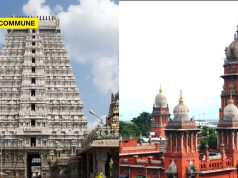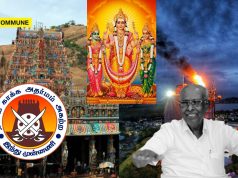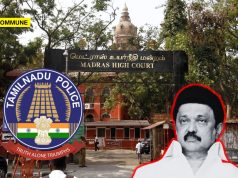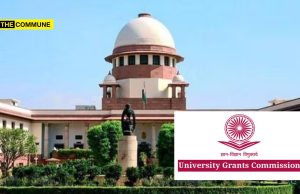
Noting that religious beliefs must be respected and cattle must be treated humanely and dignifiedly, the Madras High Court bench, comprised of Chief Justice Sanjib Banerjee and Justice PD Audikesavalu, sought a report on the number of cattle at the temples as well as details of any standard operating procedures in place for the cattle’s well-being.
The bench also urged the government to treat such animals ethically and in accordance with the donors’ intentions until the issue was resolved in a wholesome manner.
The case was adjourned for six weeks, and the bench also recorded petitioner Rangarajan Narasimhan’s submission that cows that stopped producing milk, male calves, and bulls that were no longer useful for breeding purposes were disposed of in an unethical manner by sending them to slaughterhouses, which went against the institutions’ and donors’ religious beliefs.
In his appearance as a party-in-person in the public interest litigation, the petitioner challenged the HR&CE Department’s GO transferring 100 cows donated to the Srirangam temple to undisclosed locations, which he claimed meant they were taken to slaughterhouses. He also claimed that such unethical cattle transfers have been going on for a long time at all of the temples in the state, and that the HR&CE Department took advantage of certain loopholes to issue such GOs for indirect transfer of animals to slaughterhouses.
The counsel for the Srirangam temple administration claimed that the cattle were simply transferred to other temples and that none of them were sent to slaughterhouses. The Indian Animal Welfare Board has also agreed to file a report on the matter.
Later, Madras HC directs TN HR&CE dept to file a report in four weeks listing out the number of cattle, with their age & sex, under the custody of temples in the State.
(with inputs from HinduTamil)
Click here to subscribe to The Commune on Telegram and get the best stories of the day delivered to you personally.




